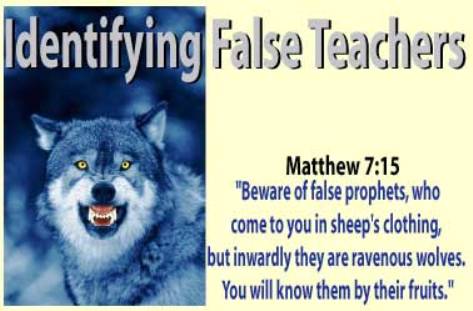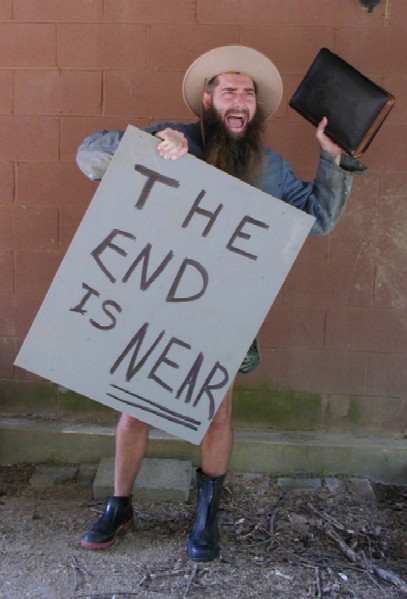In the old days of carnivals, state fairs and such there was usually a person assigned to a booth who would "GUESS YOUR WEIGHT". If they guessed wrong, then, you won a plush prize. If they got it right they kept the dollar they had charged you.
Of course, either way they made a profit because those plush stuffed animal prizes were purchased from China for mere pennies.
But, more to the point....
The RULES of the weight guessing are bracketed as within 3 pounds plus or minus. (Note: a 6 pound margin for error!)
But, in the big time professional carnivals where they charge $5 for a guess you can win a bigger prize if they are wrong ( a set of dishes or a shotgun!)
and the margin of error is down to 1 pound plus or minus!
You might think the risk would be too great of making a bad guess and losing a lot of big prizes--but, you'd be wrong!
You see....it is a SCAM.
In front of the guessing booth (built into the ground) is a platform scale covered by dirt. When the Rube stands on it the carnival sharpie reads the scale (behind his lecturn) and simply shouts out the actual weight! Then, to prove right "guess" an ordinary weight-for-a-penny scale is used to check the "guess" kept handy for the public to witness.
It all sounds like farily innocent trickery. No big crime is committed and everybody has fun.
The guess might just be a savvy estimate on the one hand or a duplicitous reading of the hidden scale on the other hand. Either way the "risk" involved is minimal and voluntary.
***************************_________________**********************______________________________************************
A legitimate "guess" is always based on something that can later be proved. Age, height, weight are verifiable through measurement.
An estimate is different. An estimate is only intended as "provisional" such as how much the mechanic is going to charge for your water pump replacement.
After all, the mechanic might discover far more serious problems as he gets into the details of the job!
But, what about matters that aren't actually measurable or estimable? What about PROPHETIC guesses, conjectures and estimates?
What are they based upon and how are they provable?
An event spoken of in advance would eventually either take place (as predicted) or it would not.
That is--if it were a ONE TIME event unlike any other event with which it could be confused.
A ridiculous example would be predicting that a "high profile public figure will die this year". This is hardly a prophecy since this sort of occurance
takes place regularly and always has. There would be a vanishingly small chance of being wrong!
The more specific the details of the predicted event the more unusual and unlikely it is to happen.
The Governing Body of Jehovah's Witnesses base their entire theology on warnings about a one time only event.
But--they bracket their guesses with common everyday occurances such as floods, natural disasters, earthquakes, wars, famines, etc.
This allows their "signs" to always be pretend-provable without the actual event ever coming to fruition.
Like the carnival Weight Guess scam the entire weight of gravitas resting on the Governing Body is...NOT...to get it RIGHT.....but, to risk getting it
WRONG. The gamble itself. The public risk. Extroverted egotism is the game and the sport of it. All eyes are watching the outcome.
The public, like the Rubes paying their five bucks to win a plush prize, willingly participate in the scam.
The razzle-dazzle of "show biz" is more fun than the hum-drum of everyday life, after all. They just "might" win something, too.
But, what is the actual "weight" of an Armageddon?
Is it measurable? Verifiable?
No. It is only the excuse that entices players into the arena in the first place.
The odd spectacle of "Guess your Armageddon" is that the very idea of a day the world ends is itself a scam.
It has predictible "indicators" which make the newspaper headlines regularly. Natural disasters are just that: natural. They always have happened
and always will. But, these "signs" are exciting, impactful and real headline bangers!
In carnival parlance such signs are a "big come-on" to gather crowds and take in revenue from willing victims.
What the FAILURE of a guess does is both counter-intuitive as well as problematic.
First of all, it makes the spectacle (for want of a better description) FUN. It is a kind of game, after all.
"Ohhhh, we might all die!"
Secondarily, it makes life exciting for awhile as the date approaches until the scam is revealed.
The Rubes get to play the game, risk a bit, and experience the possibility of winning something plush. LIFE EVERLASTING!
The best part of it all is this: NOBODY really wants the prediction to be RIGHT! The relief is a reward in itself!!
Ahhh, it was really exciting and suspenseful....but, I get to go back to my life and live another day. Sigh.
If you win, you prove everybody else wrong. YOU triumph.
If the Carnival Barker (GB) is wrong.....there are no corpses to bury and the game goes on.
But, the Governing Body, like the Carnival weight-guesser, has a cheat.
The Watchtower leaders can adjust the guess over and over and over again.
The crowds come and go. Faces change. But, the scam goes on and on.


